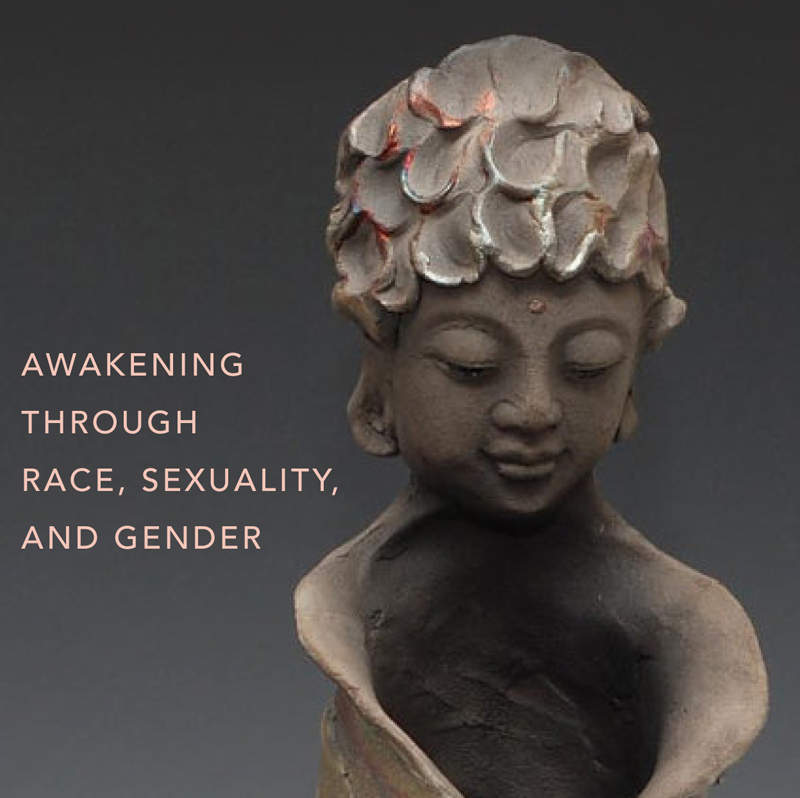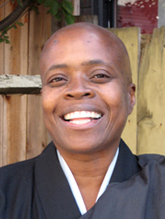Imagine this body is the only way in which you can awaken.
Last month Rev. Zenju Earthlyn Manuel, PhD, gave a public dharma talk based on her new book, The Way of Tenderness: Awakening through Race, Sexuality, and Gender. (See below for another opportunity to hear from Zenju on this same topic.) In a recording of that recent talk, Zenju explains how this work was inspired by her personal study of the Heart Sutra, a familiar and revered text across most Buddhist traditions that is chanted daily at San Francisco Zen Center.

Detail from the cover of The Way of Tenderness
As part of a guided meditation that prefaces the talk, she begins with an acknowledgement:
Sometimes it feels difficult and challenging to be in these bodies as who we are, difficult to understand the things that come our way and what we must do or what we must not do. So we still breathe into the preciousness of this gift and the situations it gets us into—our body, mind and speech.
Then, encouraging us to understand our bodies, with their individual particularities, as unique paths to each person’s own awakening, she further suggests that we can sense inside of us a certain fire. Regenerative rather than destructive, this fire actually drives us toward transformation and tranquility. “The internal blue fire is our lives,” she says. Continuing the guided meditation, she quotes the beginning of the Heart Sutra and reflects on its message of absolute truth from the perspective of the fire of individual experience:
“Avalokiteshvara Bodhisattva, when deeply practicing prajna paramita, clearly saw that all five aggregates are empty and thus relieved all suffering. Shariputra, form does not differ from emptiness, emptiness does not differ from form. Form itself is emptiness, emptiness itself form.”
And then it goes further to say “no eyes, no ears, no tongue…”—no no, no nothing. But we have all these things. So what does it mean? This was my first encounter with the sutras at Zen Center: the Heart Sutra. In studying the Heart Sutra evolved my book The Way of Tenderness. I would say this is my dissertation. I don’t get a degree, but this is it.
Imagine that spiritual awakening—you were already on the path before you came, just because you were alive and in this body, and you were using this body to go through the awakening. What if this body that you have is race-d, sexualized, gendered, classed, and on and on. What if that is the fire for this nation, for this community, the fire in which we become awake in our interrelationship, in our varied embodiments, in order to experience the balanced-ness that we all know exists already. The balanced-ness is here, the oneness is already here. We cannot possess it, we cannot rise to it, we cannot own it, we cannot become it. We can only be in these bodies.
__________

Dr. Zenju Earthlyn Manuel
Visit our website to listen to the full recording of “The Way of Tenderness” on April 25, 2015.
Also, take advantage of another opportunity to hear Zenju speak about and expand on this topic in a lecture on Saturday, June 6, at the Museum of the African Diaspora (MoAD), cosponsored by San Francisco Zen Center. See this event page for more information:
What Does Buddhism Have to Do with Black People?
Related information:











